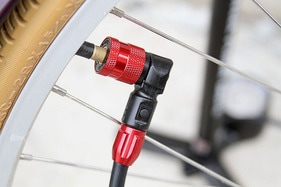 Pressure Audit - helps you to identify the stressor’s that overwhelm you and to know where there is a break point (or points) to look at prevention as well as the cure. Make small easy-to-do changes that can be achieved, this action is likely to boost your confidence and help you to feel better. Write down the key issues that are creating stress/pressure in your life right now. Keep your solutions positive to you and all others concerned with the problem Managing your time - If stress is caused by the pressure of being too busy and trying to fit too much into your day, you may need to plan each day. Identify your best time of day and do the most important tasks that need the most energy and concentration at that time. Make a list of things to do. Arrange them in order of importance and try and attend to the most urgent and important ones first. Stick to one job at a time. You are likely to make fewer mistakes. Once you’ve finished a task, take a few moments to pause and relax. Make time for a healthy snack and stay hydrated, both will help you to maintain energy, focus and concentration. Relaxation & breathing techniques give you powerful tools for staying clear-headed and in control of any stressful situations. They give you the confidence to face challenges, knowing you have the ability to bring your body back into balance. Practiced regularly techniques that increase your ability to stay calm and collected under pressure. Try this simple breathing technique. If possible relax and sit quietly. Take a deep breath in through your nose to a count to 6. Hold your breath for 2 seconds before breathing out from your mouth to a count of 8. Practice this simple technique on a regular basis. The more you practice, the quicker your body relaxes. Nutrition: Supporting your stress hormones is important. Anxiety, stress, pressure utilises large stores of the mineral magnesium, vitamin C and the complex B vitamins. Magnesium is found in green leafy vegetables, nuts and seeds. Vitamin C is found is fresh fruit and vegetables and the complex B vitamins are found in wholegrains. Healthy eating plays a crucial role in your ability to deal with times of extra pressure. Protein, carbohydrates, fat, vitamins and minerals are all important for energy, mental concentration, and emotional stability. Vitamin C, B complex and the mineral magnesium supports your stress hormones. Eat balanced meals. Try to include some lean protein like poultry, lean meats, fish, or low fat dairy with each meal. Protein satisfies hunger and also helps keep you mentally alert. Ensure your meals and snacks include fresh vegetables, wholegrains & fruit. The nutrients within these foods help to neutralise harmful molecules produced when your body is under pressure. Eat regularly. Your brain needs glucose to work at its best. Eating regular balanced meals and snacks throughout the day helps keep your blood sugar stable helping to keep energy levels balanced as well as improving focus and concentration levels. Stock up on healthy snacks. If you know that a busy time is approaching, prepare by stocking up on quick, healthy snacks. Aim for healthy snacks that are high in protein and/or fibre such as; nuts and seeds with a little dried fruit such as apricots or cranberries, veggies such as carrots, celery and peppers with houmous or cottage cheese, fresh fruit with granola and yoghurt, popcorn, low sugar flapjacks, oat, seed and nut bars, whole wheat crackers with low fat cheese, wholegrain muffins and scones in place of high fat and sugar foods which may put more pressure on your adrenal glands. Don’t skip meals. You may end up bingeing on foods that are unhealthy for you and energy levels may suffer as a result. If you are not feeling hungry due to pressure then try eating smaller amounts of food more often during the day. Cut back on caffeine. Caffeine may lead to increased blood pressure and may make you anxious, especially if you are already prone to anxiety. Caffeine can increase your alertness and muscle tension but it also activates the stress response, too much can have similar effects to chronic stress. Take time to enjoy your meal. Eating at your desk while you work or paying bills while you eat dinner could be adding to your feeling of pressure. Take a little extra time to slow down (try the breathing technique mentioned above before eating), relax while you eat and allow 15 minutes after eating a meal before you get on with any work. Chew food well, only have a small glass of water (no more than 250ml) with your meal. In doing so, your body is prepared for digestion of the food you intake. Relaxing and chewing food well initiates gastric secretions to digest your meal. This is important because if your meal is not digested properly, you may find you have the following symptoms; indigestion, burping after eating, IBS type symptoms of constipation and diarrhoea, acid reflux, bloating and flatulence. When the body is under pressure, feeling anxious or stressed; the body slows digestion to enable energy to be diverted to the extremities (the fight and flight response), food may not be digested efficiently and this leaves it putrefying (rotting if you like) in the gut contributing to the symptoms mentioned above – yuk! So, slow it down, relax and take time to eat. Take brief regular walks at lunchtime. Get out for 15 minutes in the fresh air, putting your phone on silent so no one disturbs you. Take a look around you, take in what you see – the clouds, the sun, the trees, colours etc; breathe in the peace of your surroundings. Book a time slot in your diary to give yourself some time off. It can be anytime but preferably in the middle of the day. Whatever the time limit i.e. 30 minutes/an hour, take that time to do something completely different. Focus on something dear to you through a photo. Whether that’s your loved ones (family), or a boat or your home have it close to you and look at it for a few minutes each time. It can help you realise what’s important to you. Maintain clear boundaries. If your job means you check you mobile or any other device regularly, do so every hour in place of every ½ hour. Make sure you have a cut-off point when to accept calls or make calls. Ensure your work-place knows this cut-off point and put your phone on silent – not vibrate. If family is the problem, do the same. Discuss your boundaries with your family and explain why you need this time to yourself. Be kind to yourself and to others. Give yourself and others the permission to have an ‘off’ day every now and again; this can lead you to being more understanding of others’ difficult times. We all can’t be on form every moment of every day. Make to most of family time. Time flies and you can’t get this time back again. Before you know it the kids are grown up and you may wonder where you were during this time. Spend time watching TV with them; find out what they love doing with you and share that time together. Make ‘quality’ time with your family an important part of your week. Making changes is not always easy and there are no instant fixes so take time to put your new lifestyle choices into practice. Start off with a simple choice and go from there. Smile often even through difficult times. Smiling is infectious; it can turn a negative into a positive. Adopting a humorous view towards life’s situations can reduce everyday stressors. Laughing has been clinically proven to lower blood pressure and reduce stress hormones. If you see a colleague having a difficult time, smile at them, you may be surprised to see that smile change a person’s difficult day to a better more uplifting day. Try and see the funny side of things it can help you to have clearer thinking. Be Well Liz Shield Please note: This information is provided for general information only, and should not be treated as a substitute or replacement from any advice received from your own medical practitioner, health care advisor or nutritional therapist who may have performed a full case history. Cloud Nine is not responsible or liable for any diagnosis made by a user based on the content of this information
0 Comments
Leave a Reply. |
The Holistic Life CoachHolistic & Natural Solutions for Health and Wellbeing Categories
All
Archives
March 2018
|
COOKIE POLICYWe use cookies on this site to help us improve your experience. If you wish to understand fully how we use these, click through for our 'cookie policy'.
PRIVACY POLICY |
disclaimerAll material on this website is provided for your information only and may not be construed as medical advice or instruction. |
Contact UsSubscribeJoin our mailing list today!
|


 RSS Feed
RSS Feed